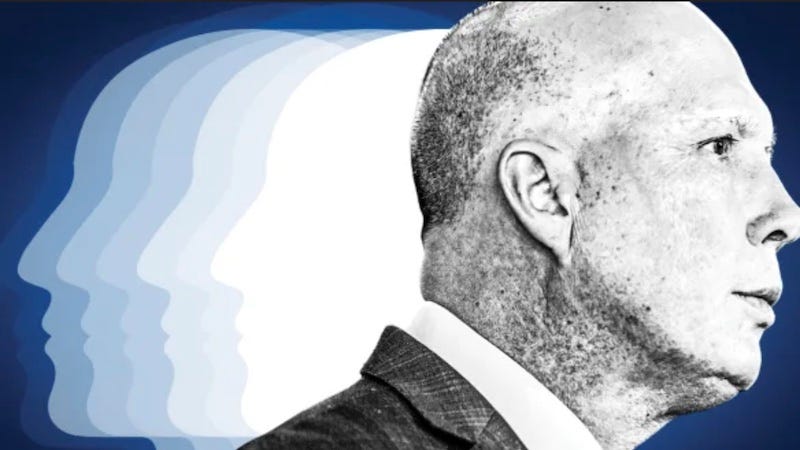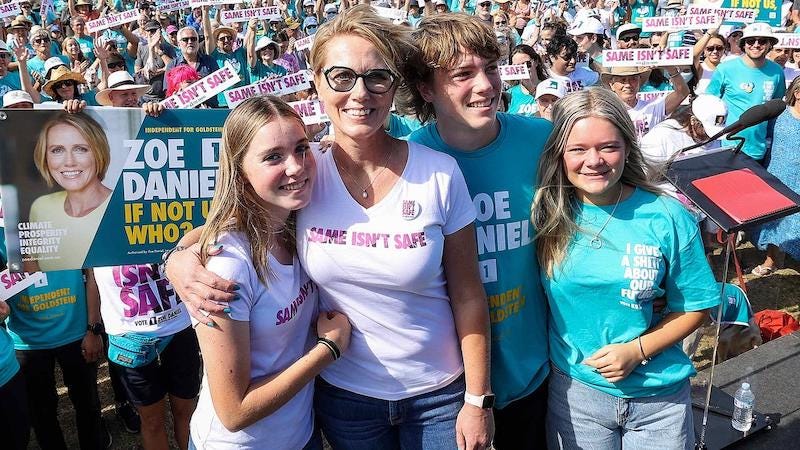Dutton’s conservative stance and climate wars will isolate Australia
The re-emergence of the climate wars in Australia, spearheaded by Peter Dutton, is bad news and not in the national interest.
The re-emergence of climate politics in Australia, spearheaded by leader of the Liberal Party Peter Dutton, highlights a significant ideological and strategic dissonance within the party’s ranks, particularly following their significant losses in the 2022 federal election. These losses, primarily to the teal independents who campaigned heavily on progressive climate policies, might have suggested a moment for reflection and realignment towards more environmentally friendly policies. Instead, the party, under Dutton’s leadership, along with the support role of the National Party leader, David Littleproud, seems poised to double down on a more conservative, pro-nuclear, anti-climate action stance.
Dutton’s rhetoric, coupled with Littleproud’s comment that the Coalition will place a cap on funding for renewable energy projects, should they win the next federal election, is a retreat from proactive climate action. His outright dismissal of Labor’s climate targets for 2030 as “unachievable”, and his unchallenged critique that pursuing such goals would lead to skyrocketing power prices, paints a grim picture of the Liberal Party’s climate strategy. This stance is not just a rejection of Labor’s policies but also signals a withdrawal from the Paris Agreement, an international commitment to combat climate change and reduce rising global temperatures. Such a move would not only isolate Australia on the global stage but also contradict the desires of the electorate that ousted numerous Liberal candidates in many metropolitan areas in favour of those advocating for stronger climate action.
In contrast, Prime Minister Anthony Albanese’s response highlights the broader implications of Dutton’s approach, framing it as an abandonment of Australia’s international obligations and a threat to future investment in clean technologies. Albanese’s remarks suggest that walking away from the Paris Agreement equates to standing with nations that are either embroiled in conflict or are international outliers—Yemen, Libya and Iran—further illustrating the potential diplomatic and economic isolation that could result from such a policy shift.
The strategy of reigniting the so-called “climate wars” does not only reflect a policy preference but seems to be a calculated, if misguided, political gamble by Dutton, a gamble that presupposes that the backing of powerful media proprietors—Kerry Stokes and Rupert Murdoch—could sway public opinion enough to counteract the clear environmental concerns expressed by voters during the last election. However, the electoral defeat of key figures such as former Liberal Treasurer Josh Frydenberg, despite favourable media coverage, challenges the effectiveness of this strategy, and the 2022 election results, certainly in the seat of Kooyong, suggest that voters are increasingly discerning over issues relating to climate change, prioritising substantive policy positions over partisan narratives.
The inclusion of nuclear power in the policy mix introduces another layer of complexity and public resistance. While nuclear power offers a low-emission alternative to fossil fuels, the issues of prohibitive costs, waste management and the ‘not-in-my-backyard’ sentiment significantly complicate its deployment as a feasible or popular solution in Australia. Dutton’s advocacy for nuclear power, however, is more of a diversion rather than a viable policy shift, highlighting a potential misreading of public sentiment and the practical challenges of energy policy.
This situation presents a paradox where the Liberal Party, in an attempt to differentiate itself from its opponents, is moving further away from the very constituents it needs to regain. The persistence of this strategy could either be a testament to a deep-seated ideological commitment to traditional energy sources or simply a misjudgment of the electorate’s priorities. Either way, it signals a turbulent time ahead for the Liberal Party, as it navigates through the combination of media influence, voter sentiment, and the urgent global need for effective climate action.
The Liberal Party continues to alienate key electorates
Dutton’s decision to also withhold specific climate targets until he wins the next election reflects a broader trend in his political engagement—promising results without providing substantive plans or details. This tactic not only risks alienating voters who demand clear and immediate action on climate change but also undermines the transparency expected in democratic processes.
The resistance to committing to detailed climate plans before an election is particularly problematic in the context of the seats the Liberal Party lost to teal independents and the Australian Greens. These seats, such as Kooyong, Goldstein, North Sydney—a seat which is also subject to a redistribution by the Australian Electoral Commission—Warringah, Macarthur, Wentworth, Ryan and Brisbane, are characterised by a voter base that has shown a strong preference for proactive environmental policies. The independents who won these seats did so by presenting detailed, ambitious climate policies, directly countering the less defined and more conservative environmental approaches of the traditional parties. Dutton’s vague promises and his reluctance to engage with climate science and a lack of detailed policy planning do not resonate with these electorates.
Dutton’s strategy appears to focus heavily on consolidating his highly reactionary base, primarily engaging through platforms such as News Corporation, Sky News and 2GB, which cater to a more conservative audience. This tactic might solidify his support in certain demographics but does little to address the broader national concerns about climate change and environmental sustainability. It also potentially isolates him from a segment of the electorate that is crucial for any significant electoral victory—those in the middle ground who may be swayed by substantive policy offerings rather than partisan alignment.
The leadership style that Dutton exemplifies—marked by a lack of flexibility and tactical acumen—raises questions about his capacity to navigate the complex and shifting political landscape of Australia. The emphasis on nuclear energy, a contentious issue within Australia, without providing details or engaging with the community concerns about cost, waste management and safety, further illustrates this disconnect. His dismissive attitude towards demands for more detailed environmental and energy policies not only alienates potential voters in crucial seats but also provides fertile ground for opposition parties to critique and campaign against his leadership.
The comparison drawn between Dutton’s secretive approach to policy details and his criticisms of the Labor Party’s detailed Voice to Parliament referendum in 2023 exemplifies a perceived hypocrisy in his political stance, undermining his credibility and the trust voters might place in him. Such discrepancies between what is critiqued and what is practiced could lead to voter apathy or backlash, particularly in areas sensitive to political and policy integrity.
Ultimately, Dutton’s current strategy may secure certain rural and outer urban seats where conservative values are more prevalent, but it neglects the inner urban and suburban seats that form a crucial part of the electoral landscape. The risk here is that by focusing too narrowly on a conservative base that is already secured, Dutton and the Liberal Party may fail to address the broader national issues that are critical to winning elections, such as effective climate action and transparent governance. This approach not only threatens their chances in upcoming elections but also suggests a broader issue within the party: a lack of viable leadership alternatives who can realign the party’s strategies with the evolving priorities of the Australian electorate.
Electoral risks in the lead up to the next federal election
As the next federal election approaches—due before May 2025 with a small chance of being held in November this year—the stakes for Dutton and the Liberal Party become increasingly clear, especially in light of government projections suggesting that Australia is on track to achieve a 42 per cent reduction in emissions by 2030, one percentage point under the target. This progress, made despite the Coalition’s historical resistance to climate policies, indicates a broader global shift towards sustainability that Australia risks being left behind from if it does not participate. The international market for electric vehicles and renewable energy sources—especially China and, increasingly, the United States—presents massive economic opportunities that Australia could capitalise on, yet the strategy proposed by Dutton shies away from these prospects.
This outright and hostile rejection to set clear climate targets reflects a broader strategic vulnerability for the Liberal Party. Dutton’s decision to defer revealing any climate targets until potentially winning the next election opens him and his party to criticisms of opacity and lack of commitment to critical national and global issues. This tactic, reminiscent of his stance during the Voice to Parliament campaign where he advocated a conservative approach to change, could be politically weaponised against him. The phrase “If you don’t know, vote no,” used effectively against the Voice to Parliament proposal, might just as effectively be turned against Dutton himself, as voters may prefer transparency and decisiveness in policy-making, particularly on issues as critical as climate change.
Polls showing the Coalition neck and neck with the Labor government or even trailing slightly—the recent Resolve poll even shows Dutton ahead of Albanese as preferred Prime Minister for the first time—indicate a volatile political environment where public opinion could shift rapidly, especially as environmental and economic issues take centre stage. The electorate’s engagement levels may not currently be high, but as the election nears and campaigns intensify, Dutton’s continued emphasis on divisive or opaque policies could further alienate moderate and swing voters, as well as those in key seats concerned about environmental issues.
Dutton’s public persona as a tough but negative character—“a muscular brand of politics”, in the words of a certain ABC political commentator—might not resonate well outside his conservative base. Even if described by some media outlets as a strong and decisive leader, this image does not seem to hold much traction beyond those predisposed to support him. In contrast, a perceived lack of genuine leadership and innovation in policy could dampen enthusiasm among broader segments of the electorate, who are looking for proactive and positive leadership, especially in areas like climate policy where Australia has both much to gain and much to lose.
The Liberal Party, under Dutton’s leadership, faces complex challenges. To regain lost seats and secure new ones, they must navigate a course that increasingly values substantive action on climate change and clear, forward-thinking policies. The upcoming election presents not just a test of political strategy but of the party’s ability to align itself with the evolving values and priorities of the Australian electorate. The outcome will likely hinge on whether the Liberal Party can convincingly address these critical issues or if they will continue down a path that may lead to further political isolation and electoral challenges.










